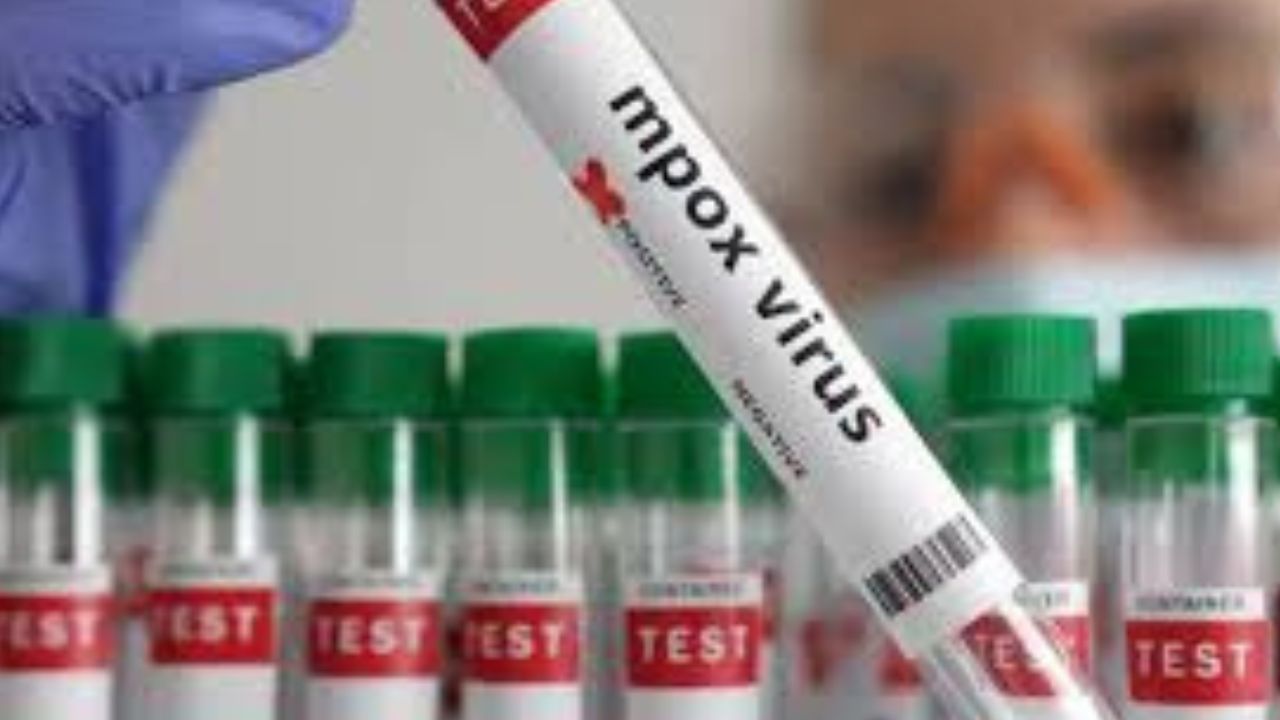A suspected Mpox (previously known as Monkeypox) case has been identified in India, raising concerns across the nation as health authorities scramble to assess the situation. The individual exhibiting symptoms has been isolated, and investigations are currently underway to confirm whether it is indeed a case of Mpox. The Ministry of Health has issued an alert and is closely monitoring the situation to prevent any potential outbreak.
Here’s a detailed look at the current developments, symptoms, preventive measures, and government actions surrounding the suspected Mpox case in India.
What is Mpox?
Mpox is a viral disease caused by the Monkeypox virus, part of the same family of viruses as smallpox. Although it was first discovered in monkeys, Mpox primarily affects humans and can cause severe illness. It is characterized by fever, rashes, and swelling of lymph nodes, and can lead to complications if not properly managed. Unlike smallpox, Mpox is usually less severe but requires prompt attention to prevent its spread.
Key Symptoms of Mpox
People suspected of contracting Mpox may exhibit a range of symptoms, many of which resemble other viral infections. Here are the key symptoms:
- Fever: A sudden onset of fever is often the first sign of Mpox.
- Rashes: Skin rashes appear on various parts of the body, including the face, hands, and feet. These rashes may evolve into blisters and crust over.
- Swollen Lymph Nodes: Enlarged lymph nodes are a distinctive feature of Mpox, which helps differentiate it from smallpox.
- Headache and Muscle Aches: General malaise, body aches, and headaches are common symptoms.
- Fatigue: Severe fatigue and exhaustion are often reported in infected individuals.
Suspected Case in India: Current Status
Investigation in Progress
The suspected case was identified after the individual exhibited symptoms consistent with Mpox, including fever and skin rashes. Health authorities have immediately quarantined the patient to prevent any possible transmission. Samples have been collected and sent to the laboratory for testing, and the results are awaited. The Health Ministry is actively involved in the investigation and has issued alerts to medical institutions across the country.
Response from the Health Ministry
The Indian Ministry of Health and Family Welfare has escalated its preparedness, issuing guidelines to state health departments, hospitals, and testing labs. A team of medical experts has been deployed to monitor the situation closely. While the case is still under investigation, the ministry is not taking any chances and has activated surveillance protocols across the country.
International Monitoring
Given that Mpox cases have been reported globally, the World Health Organization (WHO) and international health agencies are also keeping a close eye on the developments in India. Global collaboration is essential to curb the spread of such infections, and India is working with international health bodies to ensure that best practices are followed.
Transmission and Spread
Mpox can be transmitted through various means, including:
- Close Contact with Infected Individuals: Direct contact with the skin rashes or body fluids of an infected person increases the risk of transmission.
- Respiratory Droplets: Although less common, prolonged face-to-face exposure can lead to transmission through respiratory droplets.
- Contaminated Surfaces: Touching surfaces, clothing, or bedding that has been contaminated by an infected person can also result in transmission.
The virus can spread quickly in close-knit communities or households if proper precautions are not taken.
Preventive Measures Against Mpox
In light of the suspected Mpox case in India, the following preventive measures have been recommended:
1. Isolate Suspected Cases
Individuals exhibiting symptoms should be isolated immediately to prevent the spread of the virus to others. Isolation protocols should be followed strictly in hospitals and quarantine centers.
2. Regular Hand Washing
Frequent hand washing with soap and water, or using alcohol-based hand sanitizers, is an effective way to minimize the risk of contracting Mpox.
3. Personal Protective Equipment (PPE)
Healthcare workers and those in contact with suspected cases should wear appropriate personal protective equipment (PPE), including gloves, masks, and gowns, to reduce the risk of exposure.
4. Avoid Close Contact
Individuals are advised to avoid close physical contact with anyone exhibiting symptoms of Mpox, particularly those with rashes or fever.
5. Vaccination
Though no specific vaccine is available for Mpox, the smallpox vaccine has shown effectiveness in preventing infection. Countries with a stockpile of smallpox vaccines may consider using them in high-risk populations.
Government Preparedness and Future Steps
The Indian government is not new to dealing with viral outbreaks, and its response to the suspected Mpox case reflects lessons learned from previous health crises. The government is focused on early detection, isolation, and treatment of suspected cases to contain any possible spread of the virus.
Increased Surveillance
The Ministry of Health has asked state governments to increase surveillance in high-risk areas, particularly where international travelers are present. Screening of passengers at airports and seaports has been ramped up, especially for those arriving from countries where Mpox cases have been confirmed.
Public Awareness Campaigns
The government has also launched public awareness campaigns to educate citizens about the symptoms of Mpox and the importance of seeking medical attention early. Informational material is being distributed, and healthcare facilities are on high alert to handle any suspected cases.
Table of Contents
While the investigation into the suspected Mpox case in India is still ongoing, the country is well-prepared to handle any eventuality. The Ministry of Health has taken swift action, and preventive measures are being enforced nationwide to curb any potential outbreak. As more details emerge, it is essential to stay informed and vigilant, following all recommended guidelines to safeguard public health.

